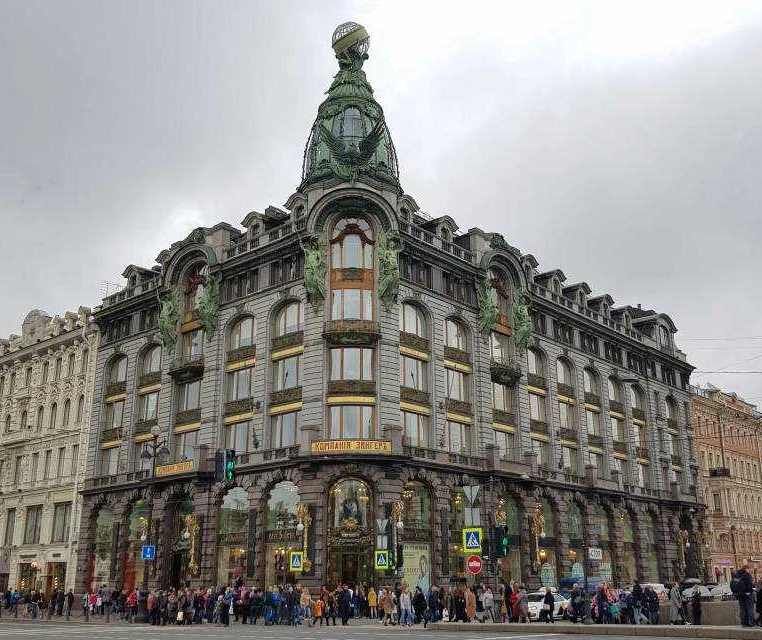In St. Petersburg, Rospotrebnadzor checked milk from pavilions near the metro
Содержимое
In St. Petersburg, Rospotrebnadzor conducted an inspection of the milk quality from the pavilions located near the metro stations. Find out the results and ensure the safety of your milk consumption in the city.
The Federal Service for Supervision of Consumer Rights Protection and Human Well-Being (Rospotrebnadzor) has been conducting inspections of milk sold in the pavilions adjacent to metro stations in St. Petersburg. This initiative comes as part of the ongoing efforts to ensure the quality and safety of food products available to the public.
Rospotrebnadzor has been actively monitoring the food market in St. Petersburg to prevent the sale of substandard and potentially harmful products. The inspections specifically focus on the milk sold in the pavilions located near metro stations, as these areas often attract a large number of customers seeking quick and convenient purchases.
The inspections involve thorough checks of the milk for compliance with quality standards and hygiene regulations. The samples collected are sent to specialized laboratories for further analysis. Rospotrebnadzor also reviews the documentation and records related to the milk production and distribution process to ensure that all necessary precautions are taken to maintain the product’s safety and quality.
The goal of these inspections is to protect consumers from purchasing milk that may be of poor quality or contain harmful substances. Rospotrebnadzor aims to promote transparency and accountability in the food industry, and these inspections are an essential part of their efforts to achieve this goal. By ensuring the safety and quality of milk sold in the pavilions near metro stations, Rospotrebnadzor contributes to the overall well-being of the residents and visitors of St. Petersburg.
Milk Inspection by Rospotrebnadzor

Rospotrebnadzor, the Russian consumer rights protection agency, has conducted inspections on milk products sold in pavilions adjacent to the metro stations in St. Petersburg. The aim of this inspection was to ensure the safety and quality of the milk being sold to consumers.
During the inspection, Rospotrebnadzor officials checked the milk for various parameters, including its temperature, fat content, and presence of any contaminants. They also examined the packaging and labeling of the milk to ensure compliance with the necessary regulations.
The inspection revealed that some of the milk samples did not meet the required standards. These samples were found to have higher levels of bacterial contamination, indicating poor hygienic conditions during production or storage. In addition, certain samples had incorrect labeling, which could mislead consumers about the quality and origin of the milk.
Rospotrebnadzor has provided recommendations and guidelines to the vendors for improving the quality of the milk products and ensuring compliance with the regulations. They have emphasized the importance of proper hygiene practices, including maintaining the cleanliness of the production and storage areas, as well as regular testing of the milk for quality and safety.
The agency has also warned consumers to be vigilant when purchasing milk products and to check the packaging and labeling for any discrepancies. They have urged consumers to report any suspected cases of non-compliance or poor quality to the authorities.
Overall, the milk inspection conducted by Rospotrebnadzor highlights the importance of ensuring the safety and quality of food products, especially perishable items like milk. Through such inspections, the agency aims to protect the rights and health of consumers and promote a safe and reliable food market in St. Petersburg.
Metro Adjacent Pavilions in St. Petersburg

The metro adjacent pavilions in St. Petersburg play a crucial role in providing convenience to the city’s residents and visitors. These pavilions serve as important commercial spaces located near metro stations, offering a wide range of goods and services.
With their strategic location, these pavilions attract a significant number of customers daily. They cater to the needs of commuters, offering various products such as groceries, snacks, beverages, and household items. Many pavilions also house small cafes and eateries, providing quick bites for hungry travelers.
These pavilions not only provide essential goods but also contribute to the local economy. They offer employment opportunities to residents and contribute to the city’s revenue through taxes and rent. Additionally, they create a vibrant atmosphere around metro stations, making them more than just transportation hubs.
However, it is crucial to ensure the quality and safety of products sold in these pavilions. Regular inspections by organizations like Rospotrebnadzor help maintain high standards and protect consumer rights. These inspections focus on various aspects, including hygiene, storage conditions, labeling, and adherence to food safety regulations.
The inspections carried out by Rospotrebnadzor aim to prevent the sale of expired or contaminated products that can pose a risk to public health. By monitoring the metro adjacent pavilions, the organization ensures that consumers have access to safe and reliable products.
In conclusion, the metro adjacent pavilions in St. Petersburg play a vital role in providing convenience and essential goods to the city’s residents and visitors. While they contribute to the local economy, it is essential to maintain strict quality control measures to safeguard public health. The inspections conducted by Rospotrebnadzor help ensure that these pavilions adhere to the necessary standards and regulations, guaranteeing the well-being of consumers.
|
|
Food Safety Measures

Ensuring the safety of food products is of paramount importance for the well-being of the consumers. To guarantee the quality and safety of food, several measures are implemented:
1. Good Manufacturing Practices (GMP): Food manufacturers adhere to GMP guidelines to maintain hygiene and prevent contamination during the production process. This includes proper cleaning and sanitization, maintaining a controlled environment, and training employees about safe handling and storage of food.
2. Hazard Analysis and Critical Control Points (HACCP): HACCP is a systematic approach used to identify and control potential hazards in food production. It involves analyzing each step of the production process, determining critical control points, and implementing measures to prevent, eliminate, or minimize risks.
3. Regular Inspections: Regulatory authorities, such as Rospotrebnadzor, conduct regular inspections of food establishments to ensure compliance with food safety standards. These inspections include checking for proper storage and handling of food, verifying the cleanliness of the premises, and inspecting the equipment used for food preparation.
4. Testing and Analysis: Food samples are collected from different sources and tested for various contaminants, such as bacteria, pesticides, and heavy metals. This helps in identifying potential risks and taking necessary actions to maintain food safety.
5. Consumer Education: Educating consumers about food safety practices plays a vital role in preventing foodborne illnesses. Providing information about proper food storage, handling, and cooking techniques helps consumers make informed choices and reduce the risk of foodborne diseases.
6. Traceability: Implementing traceability systems enables the tracking and tracing of food products throughout the supply chain. This helps in identifying the source of contamination and taking corrective actions promptly.
7. Collaboration: Effective collaboration between food producers, regulatory authorities, and other stakeholders is crucial for maintaining food safety. Sharing information, exchanging best practices, and conducting joint initiatives help in addressing emerging challenges and ensuring the safety of food products.
By implementing these food safety measures, the risk of foodborne illnesses can be significantly reduced, ensuring that consumers can confidently consume food without compromising their health.
Quality Control Standards

Quality control standards are vital in ensuring the safety and quality of milk products. Rospotrebnadzor, the Russian consumer rights protection agency, conducts regular inspections to enforce these standards and protect the health of consumers.
Some of the key quality control standards for milk products include:
- Microbiological standards: Milk should be free from harmful microorganisms, such as bacteria, yeast, and mold, which can cause illness.
- Chemical standards: Milk should not contain excessive levels of harmful chemicals, such as antibiotics, pesticides, or heavy metals, which can pose health risks.
- Physical standards: Milk should have the correct appearance, odor, and texture. Any abnormal color, smell, or consistency can indicate contamination or spoilage.
- Packaging standards: Milk should be stored and transported in clean, sanitary containers to prevent contamination. The packaging should also provide adequate protection against light and moisture.
- Labeling standards: Milk products should be accurately labeled with information about the product, its ingredients, nutritional values, and any allergens present. This allows consumers to make informed choices and avoids any potential health risks.
By adhering to these quality control standards, dairy producers can ensure the safety and quality of their milk products, providing consumers with confidence and peace of mind.